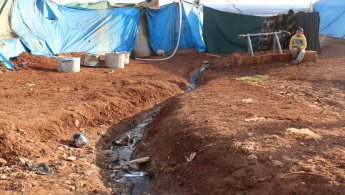Five die from Cholera in Syria's Deir el-Zor as disease spreads
Five people have died of Cholera in the Deir al-Zor province in Syria, The New Arab’s Arabic-language service Al-Araby Al-Jadeed reported on Saturday.
The deaths have occurred in the western areas of the province under the control of the Autonomous Administration, who are taking limited steps to reduce the disease.
The cholera outbreak in Syria has led to over 930 suspected cases across the country, over 70 percent of which have been recorded in the Aleppo region, and 20 percent of which have been recorded in Deir al-Zor.
Earlier this week the World Health Organisation stated the agency recorded eight deaths from the disease in the region since 25 August, including just two deaths from Deir al-Zor.
The autonomous administration are sterilising water pumping stations with chlorine to combat the disease, Nawras Al-Arfi, the media official in the local Ain Al-Furat Network, told Al-Araby Al-Jadeed.
However Al-Arfi says the administration are not supervising water transport tanks, and that the disease has spread to the camps located in areas controlled by the Syrian Democratic Forces, due to poor water conditions and lack of sterilisation.
The media official also highlighted that drinking water does not reach all areas via taps, forcing civilians to buy water through non-sterile tanks, as villages including Hawaij, Boumasaa, Jalamda have no access to reliable water sources.
The outbreak is presenting "a serious threat to people in Syria and the region", the United Nations representative in the country said on Tuesday, calling for an urgent response to contain its spread.
Cholera is an acute diarrhoeal illness that results from eating contaminated food or drinking water and is a global threat to public health.
Prior to the recent cholera outbreak in Syria, the water crisis in the region had caused an increase in diseases such as diarrhoea, malnutrition and skin conditions, according to the World Health Organization.





 Follow the Middle East's top stories in English at The New Arab on Google News
Follow the Middle East's top stories in English at The New Arab on Google News


